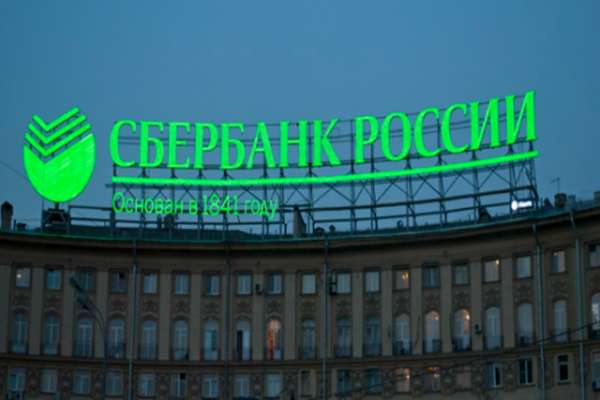Sberbank says rich Russians are taking their wealth back home out of fear of western sanctions
With new individual sanctions from the United States looming, an ever-growing number of wealthy Russians choose to keep their assets at home in Russia, according to Eugenia Tyurikova, the head of Sberbank Private Banking, a Sberbank branch that services high-net-worth customers, as reported by RBC news.
According to Tyurikova, in January 2018, the influx of funds grew threefold from the same period in 2017. “First of all, this was due to the expectations of the sanctions. The end of December and all of January brought a lot of pressure in anticipation of January 29 and February 2 with new sanctions to arrive, and there was a big urge to move [the funds] somewhere,” Tyurikova explained.
According to her, the funds are coming mainly from Switzerland, the United Kingdom and Austria. Tyurikova said the inflow was high, numbered in “hundreds of millions of dollars” although Sberbank refuses to reveal the exact amount.
Participants of the market interviewed by RBC news agency did not confirm the trend declared by Sberbank Private Banking. “January was traditionally a rather calm period in terms of client activity. Many watched cautiously the announcement of the new sanctions, but there was no en masse movement of funds of private investors recorded either from Russia or outside it,” said the Deputy Director General on private customers of the Aton investment group, Grigory Sedov.
But he confirmed that, in general, 2017 was a record year for the inflow of client assets with 53% of growth attributing mostly to client accounts whose worth starts from USD 10 million (with a growth of 67%).
Tyurikova said Sberbank Private Banking attracted “thousands of clients” over the last year. Their number grew by 37%, while the net worth of assets managed by the group grew by 78% with an average ticket increasing from USD 2.3 million to USD 3.8 million. The minimum amount needed to become a customer of Sberbank Private Banking is estimated at RUB 100 million or USD 1.7 million.
Customers began to return to Sberbank Private Banking starting from June 2016. “The de-offshorization program plaid out well: somebody got frightened; others just decided to open up partially. In addition, Sberbank started to pursue this direction more actively and, as a result, managed to attract funds from other retail banks, including those put in rehabilitation programs,” Tyurikova explained.
Russian Minister of Finance Anton Siluanov said if the high demand remains, Russian authorities in 2018 planned to increase the volume of Eurobonds offering part of the issuance to investors interested in moving capital to Russia. Moreover, Russian investors willing to invest in the bonds would be freed from foreign currency securities revaluation revenue tax payable upon redemption. The order to issue special bonds came from Russian President Vladimir Putin himself.
In addition, in March 2018, a new tax amnesty campaign will begin, aimed at encouraging the return of capital that allows wealthy Russians to reveal information about their assets and accounts held with foreign banks without any additional surcharges or taxes needed to be paid.
On January 30, the US Department of the Treasury released a declassified portion of the Kremlin Report. The report names influential politicians, businessmen and incumbents with ties to Kremlin’s authorities. Washington said the disclosure of the report was to be followed by individual sanctions.
